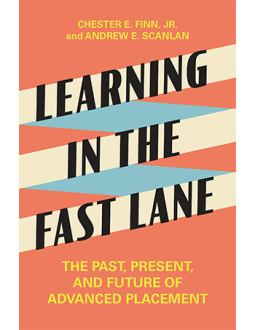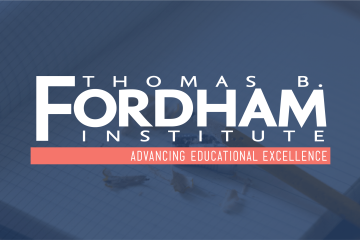Learning in the Fast Lane tells the story of the Advanced Placement program, the gold standard for academic rigor in American high schools. Termed by the Washington Post’s Jay Mathews “the most comprehensive book on Advanced Placement, the most powerful educational tool in the country,” it traces AP’s history from its mid-twentieth-century origins as a niche benefit for privileged students to its contemporary role as a vital springboard to college for high school students nationwide, including hundreds of thousands of poor and minority youngsters.
AP is also the foremost source of college-level academics for millions of students every year. More than 22,000 high schools now participate across nearly forty subjects. Yet remarkably little has been known about how this nongovernmental program became one of the great success stories of American K–12 education—until now. In Learning in the Fast Lane, Fordham’s Chester Finn and Andrew Scanlan offer a groundbreaking account of one of the most important educational initiatives of our time.
Today, AP doesn’t just open new intellectual horizons for smart teenagers; it strengthens school ratings, attracts topflight teachers, and draws support from philanthropists, reformers, and policymakers. At the same time, it faces numerous challenges, including rival programs such as dual credit, curricular culture wars, charges of elitism, the misgivings of influential universities and elite prep schools, and the difficulty of infusing rigor into schools that lack it. Advanced Placement has hugely benefited from its private sponsorship, its many supporters, and its voluntary nature for students, teachers, and schools alike. But in today’s polarized climate, can AP maintain its lofty standards and surmount the problems that have sunk so many other bold education ventures?
Richly documented and judiciously balanced, yet accessible and never ponderous, Learning in the Fast Lane is a must-read for anyone with a stake in American K–12 education.
Learning in the Fast Lane: The Past, Present, and Future of Advanced Placement, by Chester E. Finn, Jr. and Andrew E. Scanlan, is published by Princeton University Press and available to Fordham readers with a 30 percent discount; simply enter code P192 in the PUP shopping cart through June 30, 2020. You can also purchase the title on Amazon and from many other booksellers.




